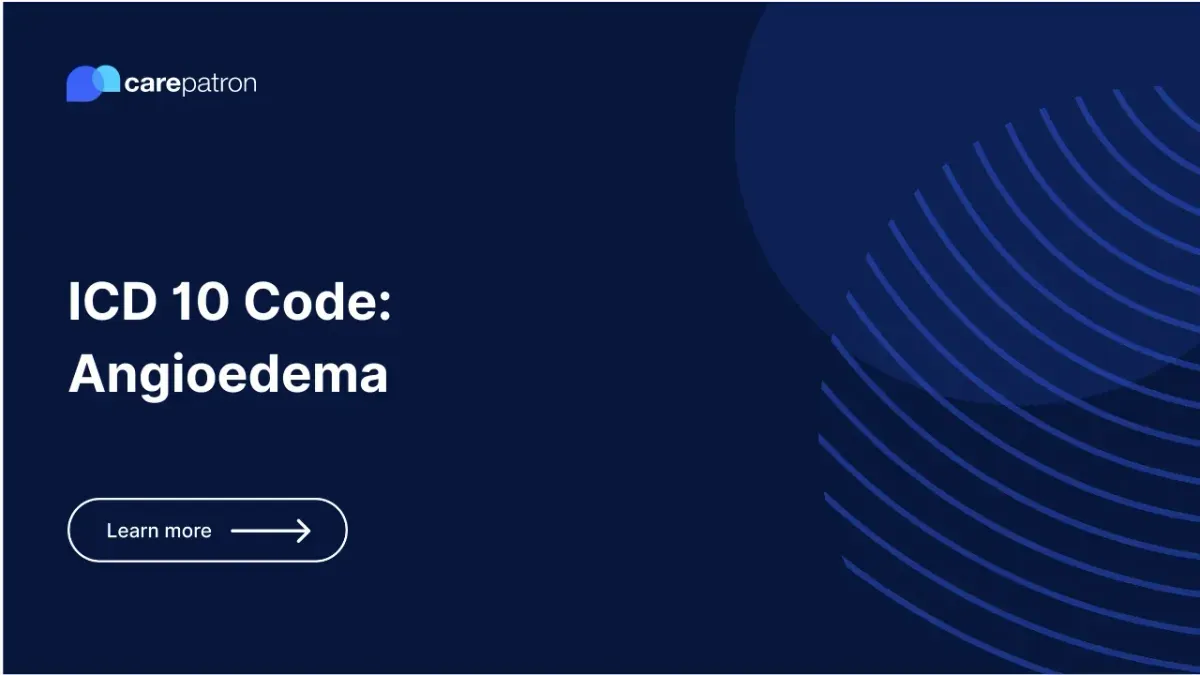
Angioedema ICD-10-CM Codes
Learn about the different angioedema ICD-10-CM codes you can use through this guide.
Use Code
Commonly asked questions
Angioedema can be triggered by allergens, such as certain foods, medications, insect bites, or physical factors like heat or pressure.
While angioedema can often be mild and short-lived, it can be severe if the swelling causes airway obstruction, leading to breathing difficulties.
Treatment often involves antihistamines, corticosteroids, or other medications to reduce swelling and pain. Avoidance of known triggers is also essential.
EHR and practice management software
Get started for free
*No credit card required
Free
$0/usd
Unlimited clients
Telehealth
1GB of storage
Client portal text
Automated billing and online payments
